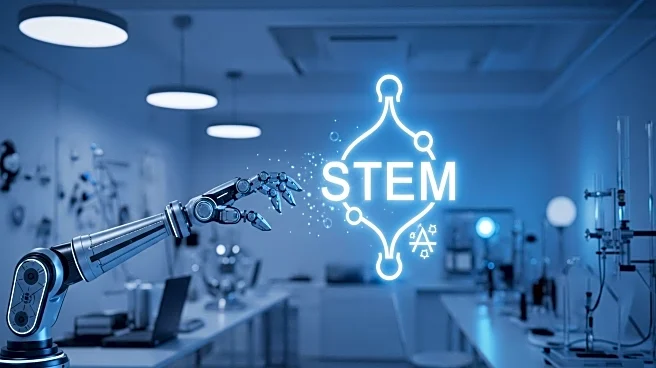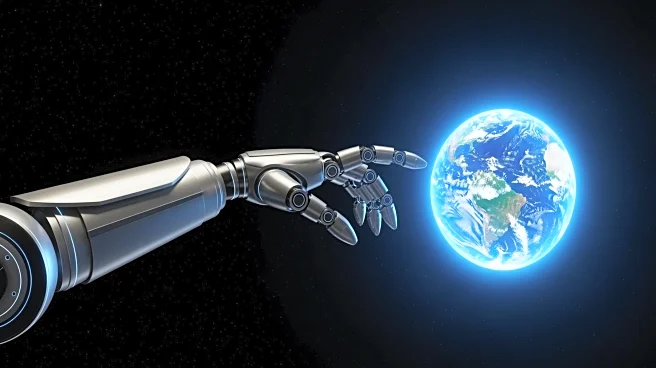What's Happening?
Sue Keay, the director of the University of New South Wales (UNSW) AI Institute, is making significant strides in the field of robotics and STEM. With a background in geology and a PhD in isotope geochemistry, Keay has transitioned from research science to a leadership role in robotics and AI. Her career includes developing Australia's first robotics road map and serving as the chief operating officer for the ARC Centre of Excellence for Robotic Vision. Keay's work has been pivotal in cataloging Australia's capabilities in robotics, particularly in overcoming challenges posed by the country's unique geographical and climatic conditions. She has also been a strong advocate for women in STEM, highlighting the need for diversity in technological development to avoid gender-based blind spots.
Why It's Important?
Keay's leadership in robotics and AI is crucial for advancing technological innovation in Australia and beyond. Her efforts to promote diversity in STEM fields address the significant gender imbalance, which can lead to biased technological developments. By advocating for more women in robotics, Keay is working to ensure that future technologies are inclusive and consider the needs of all users. This is particularly important as AI and robotics become increasingly integrated into daily life, influencing various sectors from mining to space exploration. Keay's work not only enhances Australia's competitive edge in robotics but also sets a precedent for other countries to follow in promoting gender diversity in STEM.
What's Next?
Keay continues to lead initiatives at the UNSW AI Institute, focusing on how AI and robotics can be applied across different sectors. Her role involves consulting on the future of work and exploring the integration of AI and robotics in various industries. As a board member of Women in Robotics, Keay is also committed to building a supportive community for women in STEM, encouraging them to persist in male-dominated fields. The ongoing challenge is to create a more welcoming environment for women in these industries, which requires cultural shifts and policy changes to address gender disparities.
Beyond the Headlines
The broader implications of Keay's work include ethical considerations in AI and robotics development. Ensuring diverse perspectives in these fields can prevent the creation of technologies that inadvertently exclude or harm certain groups. Keay's advocacy for women in STEM highlights the importance of inclusive innovation, which can lead to more equitable and effective technological solutions. Her efforts also underscore the need for systemic changes in education and industry to support women and other underrepresented groups in STEM.










